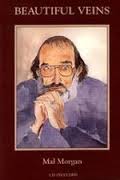
I've been thinking recently of my early years writing when I'd just started having poems published in various journals around Australia. I had begun my poetry apprenticeship - and, like any apprentice, I was helped enormously by those who had already established poetry careers. This was in the mid 80s - a time before the real burgeoning of creative writing courses and just before the establishment of the state-based writers centre in Victoria.

There was a flourishing spoken word scene in Melbourne, which certainly helped me hone my work. Performing poetry at various venues provided on-the-spot feedback - not all of it particularly constructive and certainly not all of it necessarily sober! Nonetheless, a young poet could meet colleagues and peers at these venues and enter into a dialogue of contemporary poetics. Some older and more established poets ran some of these venues - I'm thinking particularly of Mal Morgan, who held the helm at La Mama Poetica for many years. Poets like Mal and those associated with the Poet's Union, were generous in their support of younger voices.
Over my apprenticeship years I was lucky enough to count Mal Morgan and Barbara Giles as early friends and mentors who both critiqued and championed my work. The Literary Society at Deakin University, which met at the Melbourne Study Centre, was another group to which I brought my early work. The workshops were lively, constructive and rigorous. The convener, Dr Brian Edwards, regularly invited visiting authors and academics to speak at the DLS and I was fortunate enough to hear, among others, a group of Canadians including Daphne Marlatt and George Bowering read and speak. Meeting a diversity of writers challenged my own writing boundaries.
When I first started writing children's fiction, I applied for and was accepted into a mentorship programme specifically for new children’s writers which was run by Varuna, the Writers’ House. That year Hazel Edwards provided nuts and bolts information about the industry as well as individual feedback and group workshop opportunities. This was the first official mentoring I'd received and it was invaluable. Not only did it help me complete the novel I was then working on, Painted Love Letters (which went on to be a Children’s Book Council of Australia Honour Book), but it also introduced me to this community of writers I had joined.
These days, of course, there are many different official mentoring programmes offered through various bodies, including the Australian Society of Authors.
Tyle&Bateson will be offering mentorships for a restricted period of time between December and February. We're offering these at two different levels to suit both new and emerging writers. Those aimed at new writers will offered as a short online series leading up to the completion of a project. The sessions will be shaped like an online class - providing exercises, reading lists and examples of work, at the end of which the mentoree will be able to submit their project for feedback. To me, this is very alike the kind of support I gained in my writing apprenticeship though organisations like the DLS.
The mentorships for emerging writers will be more fluid and enable a writer to submit an ongoing project for feedback over a set period of time. Reading lists and exercises may well be part of these mentorships - but will be tailored towards the individual work.
What I'd like to do with these mentorships is to offer the kind of mentoring under which I thrived as a new writer - but in a more structured and focused way. Weekly access to a mentor who was thinking about me and my work - what a dream! We'll be trialling this approach and offering a special early-bird deal, so if you're interested, don't hesitate to email us so we can keep you updated.
What is your experience of being mentored and mentoring? Do share your insights. What do you see as the role of the mentor? Tell us in the comments. Have any specific questions - don't hesitate to ask!